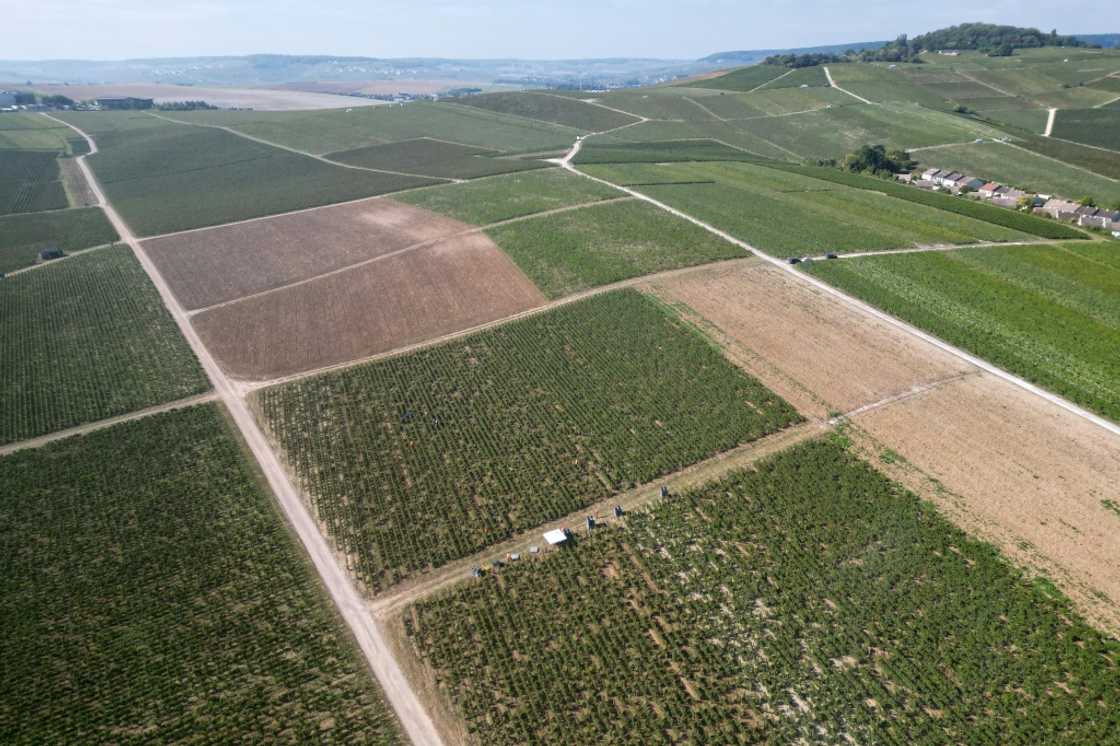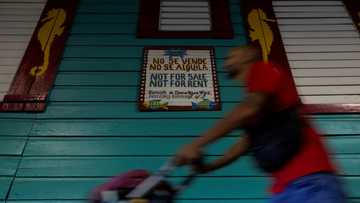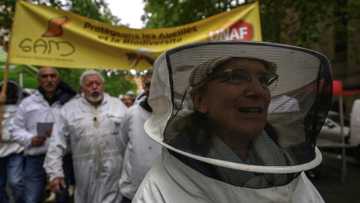France jails three in champagne 'slaves' case

Source: AFP
A French court on Monday jailed three people for human trafficking in the champagne industry, exploiting seasonal workers and housing them in appalling conditions.
The Champagne region is under tough scrutiny, with another inquiry looking into the use of Ukrainians during the same 2023 harvest, which was marked by exceptional heat and the death of four grape pickers.
A lawyer for the victims -- more than 50 mostly undocumented migrant workers from Mali, Mauritania, Ivory Coast and Senegal -- said the court had made a "historic" decision.
The victims, who said they had been treated "like slaves", also praised the ruling.
"The people were working in really bad conditions, and this decision is fair," said Amadou Diallo, a 39-year-old from Senegal.
The court sentenced the director of a servicing company called Anavim, a Kyrgyz woman in her forties, to two years behind bars, and another two years suspended.
She had denied being responsible for the housing conditions, and blamed the two other defendants suspected of recruiting the harvesters.
The court sentenced the two others, both men in their thirties, to one year in jail, alongside suspended terms.
All three were found guilty of human trafficking -- defined under French law as "recruiting, transporting, transferring, housing or receiving a person to exploit them," by means of coerced employment, abusing a position of authority, abusing a vulnerable situation or in exchange of payment or benefits.
The Anavim director was also found guilty of crimes including concealing employment of workers.
The court in Chalons-en-Champagne dissolved the servicing company and ordered a wine-making cooperative it worked with to pay a 75,000-euro ($87,000) fine.
The court ordered the three guilty to pay 4,000 euros each to each victim.
A lawyer for the Anavim director called the ruling "unfair" and said there would be an appeal.
"My client is the ideal culprit for an industry that has long turned a blind eye to its own practices," said Bruno Questel.
'Like slaves'
Maxime Cessieux, an attorney for the victims, said the 2025 harvest "will be closely scrutinised and no one will be able to say 'I didn't know, I didn't understand, I didn't know who these people in my vineyards were'."
In September 2023, the labour inspectorate found that the accommodation provided by Anavim for grape pickers southwest of Reims "seriously undermined" their safety, health and dignity.
The accommodation was subsequently closed by the prefecture, which had pointed to makeshift bedding and "the appalling state of the toilets, washrooms and communal areas."
Camara Sikou, one of the victims, told the court the workers had been treated "like slaves."
"They put us in an abandoned building, with no food, no water, no nothing," added Modibo Sidibe, who said the workers were in the fields from 5.00am until 6.00pm.
The Comite Champagne, which represents winegrowers and champagne houses, was a plaintiff in the trial.

Read also
AAUA Tragedy: A Call for Safer Schools as Students’ Dreams Get Buried in the Bush, by Folaranmi A.
"You don't play with the health and safety of seasonal workers. Nor are we playing with the image of our appellation," the trade association said.
The CGT champagne trade union said the punishment was not sufficient.
"What we are asking for is the downgrading of the harvest" in the zones where the offences were committed so it could no longer be used to produce champagne, said Jose Blanco, CGT general secretary.
Every year, around 120,000 seasonal workers are recruited to pick the grapes grown across 34,000 hectares (84,000 acres) in the Champagne region.
In 2023, four harvesters died, possibly the result of sunstroke after working in scorching heat.
A service provider and its manager will go on trial in November on suspicion of having housed 40 Ukrainians in unfit conditions.
Source: AFP




